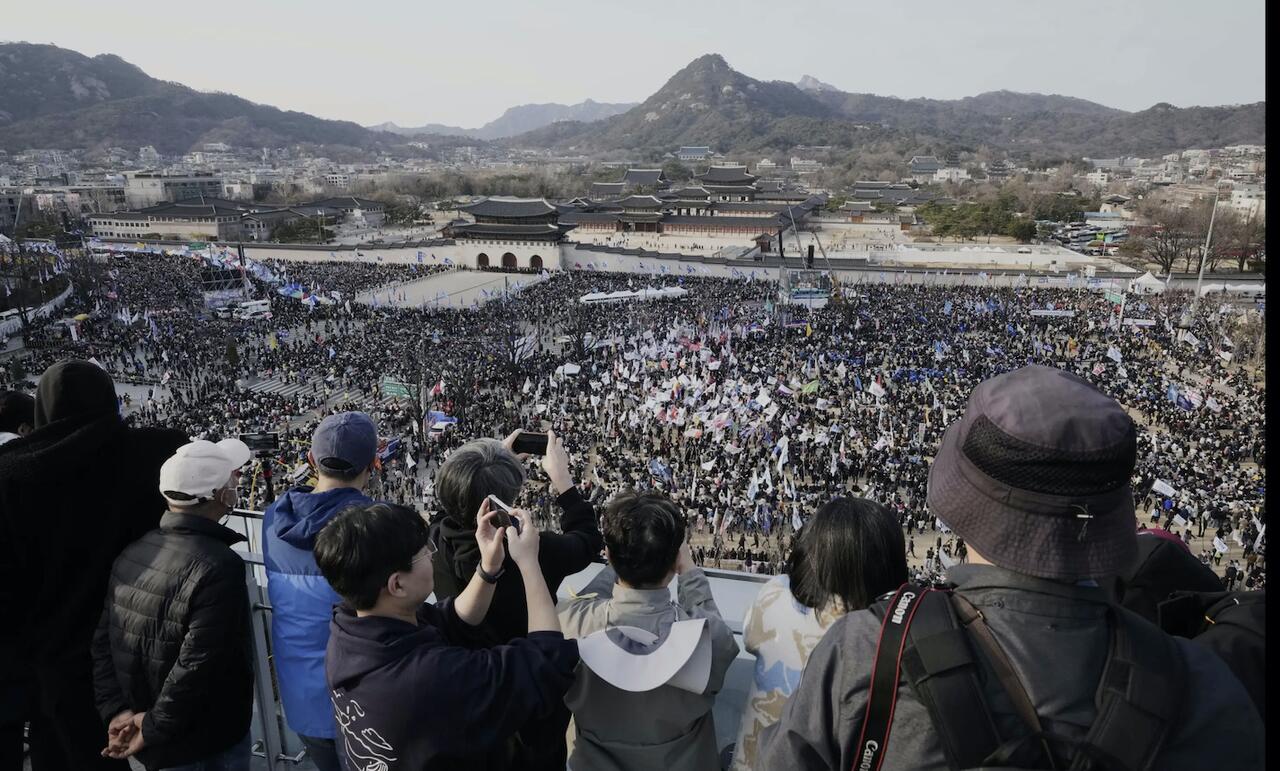Monday brought a new twist to South Korea’s ongoing political rift, as the country’s Constitutional Court rejected the impeachment of Prime Minister Han Duck-soo and immediately reinstated him as acting president. The country now awaits an even more important ruling on the legality of President Yoon Suk-yeol’s impeachment proceedings.
“I thank the Constitutional Court for its wise decision,” Han said. “I will work to get the government back on track.” Han became acting president in December after Yoon was ousted after he shocked South Korea and the world with his attempt to declare martial law.
Han’s tenure as president proved short-lived, however, as he too was removed by the National Assembly less than two weeks after taking office. His removal came after he blocked the appointment of three more Constitutional Court judges, a move designed to increase the chances of Yoon being removed. (Judges’ terms can be extended for six years, but they must retire at age 70.) He was also accused of helping Yoon declare martial law.
Since then, South Korea’s government has been led by Finance Minister Choi Sang-mok. In a sign that the National Assembly’s impeachment fever is still in full swing, opposition parties last week proposed a motion to impeach Choi, angered by his frequent vetoes of legislation and his delay in appointing a new left-wing Constitutional Court judge who has already been approved by the assembly.
This brings us to Monday, when the Constitutional Court decided to dismiss Han’s impeachment proceedings by a 7-1 vote. The reasoning varied among the judges: some argued that Han’s actions, as cited by the assembly, were not illegal, others argued that they were not serious enough to justify impeachment, and some said that the impeachment motion itself did not reach the required two-thirds majority.
Although Han’s case has been resolved, tensions are rising as the country awaits a ruling on Yoon’s impeachment. The court, which has the final say on the impeachment proceedings of the National Assembly, has not said when it will issue its ruling. If Yoon’s impeachment motion is upheld, South Korea must elect a new president within 60 days. Otherwise, he will be reinstated, which would surely create even more national friction.

As anxiety over Yoon’s pending decision grows, huge demonstrations have been held in recent days by both Yoon’s supporters and opponents. On Saturday, a duel protest took place in Seoul, involving tens of thousands of people who split into two dueling, chanting crowds separated by a makeshift barrier made up of police buses.
Polls in recent weeks showed South Koreans favoring Mr. Yoon’s removal over his reinstatement by about three to two . But in a deeply divided nation, the parliament’s decision to impeach him has also energized the political right. — New York Times
Another visible sign of the perceived change in the situation is the increased physical security at the Constitutional Court, which now features razor wire on its walls. The rhetoric is heating up. “If President Yoon is not reinstated, civil war will break out,” Pastor Jun Kwang-hoon, who has organized pro-Yoon rallies, told the crowd on Saturday. He says the effort to reinstate Yoon is a fight against “communist reds.”

Despite Jun’s prediction, as is the case in the West, the likelihood of political violence may be higher if the left loses. As Shang E. Ha, a political science professor at Sogang University, told the Times:
“If [the Constitutional Court] upholds Yoon’s impeachment, there will be some confusion, but the political landscape will quickly shift towards a presidential election. But if he returns to office, even those who have been patiently waiting for the decision will take to the streets. We will see unrest.”
That doesn’t mean that South Korea’s right-wing is entirely nonviolent. When a judge issued a warrant for Yoon’s arrest for sedition in January, Yoon’s supporters vandalized the courthouse. On another occasion, two Yoon partisans set themselves on fire to protest his impeachment proceedings.
In preparation for Yoon’s verdict, South Korea plans to impose several emergency measures on the day of the announcement: about 14,000 police officers are on standby, schools will be closed, and authorities have demanded the removal of trash cans, rocks, empty bottles, and other potential makeshift weapons from the streets.























